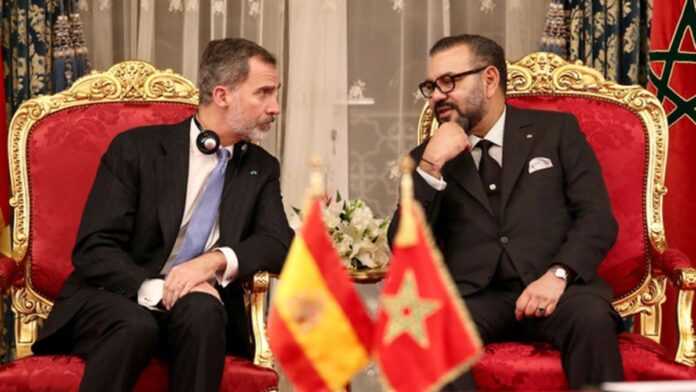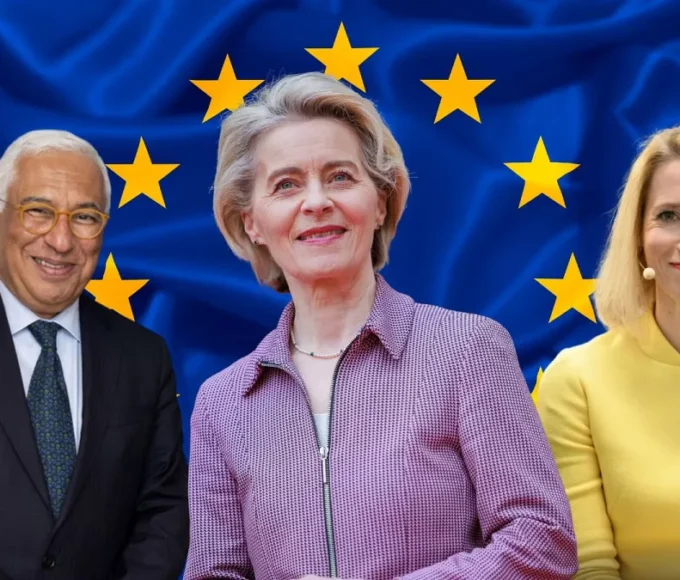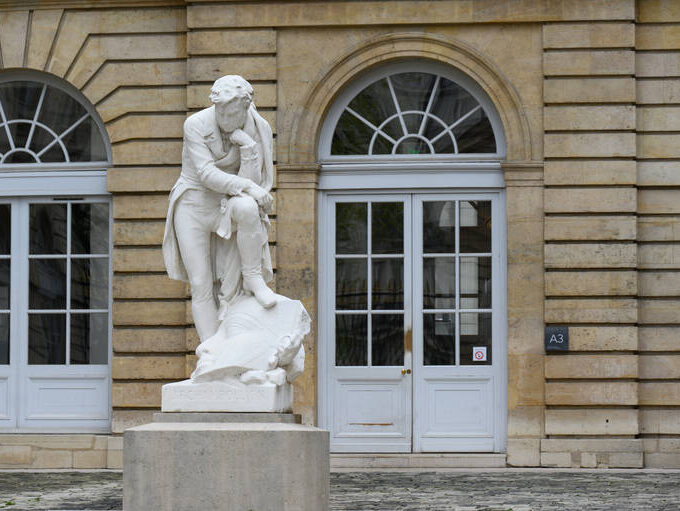The Moroccans greatly appreciated the meetings of their national team at the World Cup in Qatar, especially those which opposed Morocco to Spain and Portugal. These two football shows were very special for all fans of the Atlas Lions who certainly wanted to take their revenge after the disappointing results of the World Cup played in Russia, but also because any competition between Morocco and Spain or Portugal is a real “Derby”.
The word “Derby” is actually not enough to describe the feelings of Moroccan and Iberian supporters during these competitions since Morocco’s relationship with Spain and Portugal goes beyond the geography that has decided that they are neighbors. Economics and security policy actually link the destiny of Morocco to that of its northern neighbors. In addition, history recalls the long presence of Morocco in the Iberian Peninsula and even the presence of Portugal and Spain on Moroccan territory.
King Mohammed VI recently announced that Morocco’s bid to host the 2030 World Cup will be joint with Spain and Portugal. This confirms that Morocco’s relationship with the Iberian Peninsula goes through a real honeymoon that delights all of Europe. Economic statistics also prove this since Spain is Morocco’s largest trading partner, with 19 billion euros in trade. Portugal is also always eager to take advantage of the opportunities of its southern neighborhood since this country intends to invest nearly 700 million euros in order to establish a 1000 megawatt electric cable which will connect, before 2030, its electricity network directly to that of Morocco. .
That said, there are still difficult issues that could stop, at any time, this new marriage of Europe with Africa. We must first mention the file of separatism which remains a taboo in Spain as in Morocco. Indeed, Spain and Portugal are obliged to respect Morocco’s sovereignty over all its territory so that Morocco never reaches out to separatists from European countries. Morocco would also like to negotiate its maritime borders with Spain in order to be able to take advantage of all the capacities of its territory. However, the most difficult file remains that of the two enclaves that the Spaniards call “Ceuta” and “Melilla”.
Since independence, the Moroccan people have not stopped claiming sovereignty over “Melilla” and the city of “Cadi Ayyad” which they call “Sebta”. Moroccans put pressure on each new government to find a solution to the Spanish presence in these two enclaves, because they consider it humiliating. The Iberian neighbor sees, however, that the Spanish presence in these two enclaves is historical and does not belong to the colonial era. Spain nevertheless knows very well the bitterness that Moroccans feel since it is similar to Spanish resentments regarding Gibraltar.
Through its former head of diplomacy, Alfonso Dastis, Spain had again offered Britain the shared sovereignty of Gibraltar after Brexit despite the rejection of this offer in 2002. However, Spain forgot that Morocco also has the right to claim the shared sovereignty of Gibraltar since Moroccans are historically rooted throughout Andalusia.
If Spain asks for the abrogation of the agreements dating from the 18th century concerning Gibraltar, Morocco also has the right to ask for the abrogation of the agreements of the Reconquista dating from the 15th century and the wars that followed it in order to be able to enjoy new sovereignty over “Ceuta” and “Melilla” and even over enclaves in the Iberian Peninsula such as Gibraltar.
Many peoples still reproach several European countries for their presence in overseas territories, but the voice of these nations remains weak within the United Nations Security Council. This increases the feeling of injustice in many parts of the world. The real problem is that these peoples can be manipulated at any time, during the current global cold war, by other powers in a way that will not please the West at all.
Morocco remains pragmatic and understands that a large part of the Spanish people does not want to let down any overseas territory. And this is the reason why the Moroccan government could play the card of the next tunnel which will connect Morocco to Spain. This titanic project will require the collaboration of the two countries and the mobilization of several billion euros for it to be carried out. However, this project risks weakening European control of the migratory flow towards the Iberian Peninsula and this is where Morocco could play its card. Indeed, Morocco would be ready to cede more prerogatives concerning this tunnel to the Spaniards if they agree to cede part of the sovereignty over “Ceuta” and “Melilla” to the Moroccans. In addition, the Spaniards are aware of the growing social and economic problems of these two enclaves and which make the concrete presence of Morocco in these territories more logical.
Migratory Flow of Africans
Unfortunately, Europeans only see the migratory flow of Africans to their countries as a threat, while the underdevelopment of Africa is the fault of all developed countries. The countries of Europe must then assume their responsibilities concerning this disaster unless they intend to build other chapels similar to “the Capela dos Ossos” by the thousands of bodies of the poor which already abound in the Mediterranean.
More prerogatives in the control of this next tunnel will bring more benefits to Spain and will also prevent it from being seen as guilty in front of public opinion because of the thousands of illegal immigrants who will see, in this next tunnel, an easy opportunity for join the European paradise. Many of the security problems that bother Morocco and Spain could easily be solved by such a parallel transfer of prerogatives between the two countries, especially since Europe does not intend to cede its control of the migratory flow to any country in its neighborhood.
In truth, the construction of this tunnel will give Morocco other cards to play since this project will make the trip of posted workers to the Iberian Peninsula even cheaper. This will certainly allow the Moroccan government to evacuate some of its unemployed, but if Morocco controls this mass of posted workers, this will allow it to directly influence several European economic sectors that intend to hire them.
Finally, the peoples of the Iberian Peninsula and Morocco prefer to experience prosperity within the framework of peace instead of such a game of political cards between governments. In addition, if good cultural and religious agreements link Spain and Morocco, this peace could even include the former victims of the courts of the “inquisition” who still feel unjustly exiled in Morocco.
Morocco could, in effect, claim legitimate sovereignty over historic mosques in Andalusia such as the mosques of Cordoba and Granada, while Spain could claim religious sovereignty over existing historic churches in Morocco. This exchange of responsibilities and prerogatives could even be necessary to allow the two countries to move from the stage of the recognition of the cult to that of the legal supervision of the cult. This will then make it possible to abolish any extremism or atrocity in these holy places. Moroccans and Spaniards will therefore be able to pronounce the name of God in complete peace of mind and without any historical rancor in all places of worship on both shores.
This article is originally published on afrik.com








